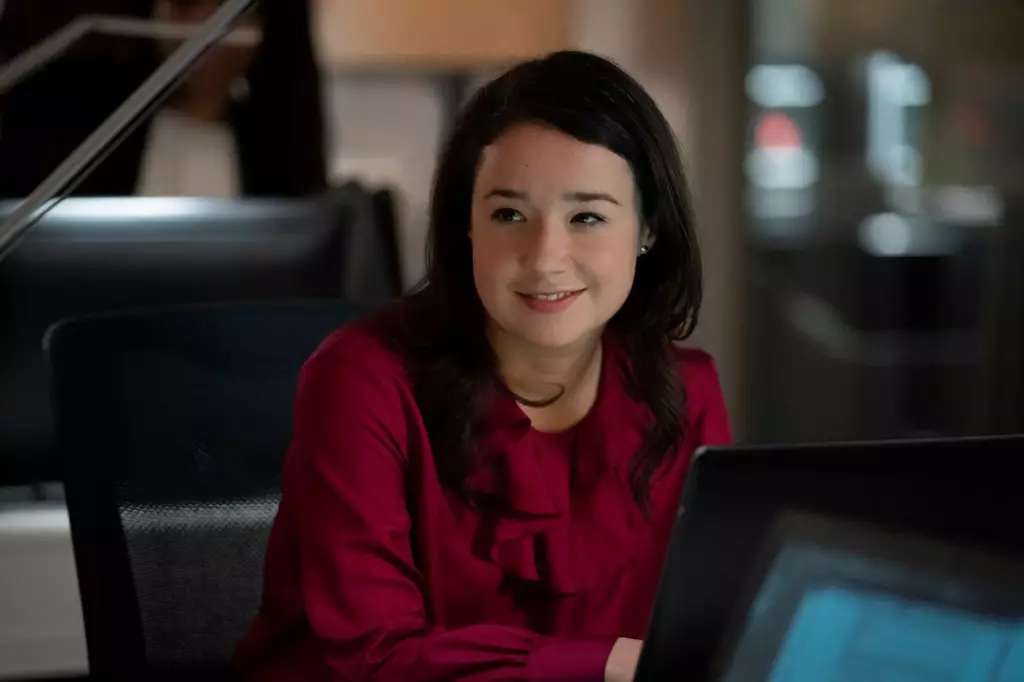The upcoming third season of *Elsbeth* represents a significant milestone in the evolving universe of the franchise. What makes this development particularly compelling isn’t just the story itself, but how its creators are strategically weaving a tapestry of interconnected characters and worlds. The return of Sarah Steele’s Marissa Gold is not merely a cameo; it’s a testament to the franchise’s commitment to continuity and character development across multiple series. This move embodies a strategic creative decision to deepen audience engagement by embracing familiar faces, thereby creating a sense of community and shared universe that feels both expansive and intimately connected.
This recurring universe isn’t just about fan service; it’s a bold storytelling choice that leverages the strength of its character ensemble to navigate complex legal and moral dilemmas with nuance. The inclusion of actors like Christian Borle and Steele in multiple series indicates an understanding that a well-developed universe benefits from a consistent core of characters who evolve over time, offering viewers a layered narrative experience. As we see these characters cross over, it’s a display of confidence that the storytelling can withstand the weight of its interconnectedness without losing its unique voice.
Character Arcs That Break Convention
One of the most intriguing aspects of *Elsbeth* Season 3 is how it redefines character arcs through its unconventional protagonist, Elsbeth Tascioni. Played masterfully by Carrie Preston, Elsbeth is not your typical legal eagle. Her unconventional methods and sharp intuition set her apart within the legal drama genre. Instead of sticking to traditional courtroom heroics, the show uses her character to challenge societal norms and question legal morality through a quirky yet insightful lens.
What’s particularly refreshing is the show’s willingness to explore the depths of its characters’ complexities rather than settling for superficial portrayals. The appearance of well-known actors in guest roles — from late-night hosts like Stephen Colbert to emerging talents like Lindsay Mendez — isn’t just for entertainment; each provides a unique perspective that enriches the narrative and pushes Elsbeth’s investigations into fresh territory. The inclusion of diverse characters, like Officer Grace Hackett, also amplifies the show’s commitment to portraying a multifaceted New York City, reflecting real-world social tapestries.
Challenging the Norms of the Legal Drama Genre
*Elsbeth* Season 3 challenges conventional ideas of legal storytelling by infusing it with humor, satire, and even horror elements. The Halloween-themed episode, featuring Annaleigh Ashford as a murderous suburban housewife, exemplifies how the series refuses to be boxed into traditional legal drama stereotypes. Instead, it embraces a hybrid genre approach, making each episode a layered mix of comedy, crime, and social commentary.
This kind of genre blending pushes the boundaries of audience expectations, forcing viewers to confront uncomfortable truths about societal issues through a fictional lens. It elevates the genre from mere courtroom procedural to a provocative commentary on American culture, identity, and morality. The decision to feature cameo appearances by figures like William Jackson Harper and Lois Smith further enriches this tapestry, offering a spectrum of voices and perspectives that deepen the storytelling.
The strategic placement of guest stars who bring their own unique storytelling styles adds richness and unpredictability to the season. The show’s daring approach demonstrates a confident understanding that entertainment can function as a mirror to society, reflecting its complexities with wit and intelligence.
A Cultural Powerhouse with Enduring Relevance
Ultimately, *Elsbeth* Season 3 isn’t just an attempt to entertain; it’s a deliberate act of cultural storytelling, leveraging its universe to make sharp observations about contemporary societal issues. By revisiting characters like Marissa Gold and introducing new ones who challenge norms, the show positions itself as more than just a legal drama. It becomes a platform for meaningful dialogue wrapped in compelling storytelling.
The creative risk-taking evident in this season, from cross-over characters to genre-bending episodes, signals a broader shift in how television narratives evolve—no longer confined to rigid formulas but embracing complexity, diversity, and nuance. This approach not only keeps the franchise relevant but transforms it into a powerhouse of cultural resonance that invites viewers to think critically while being thoroughly entertained.
As the season premieres, audiences will be watching not just for the legal intrigue but for the bold statements embedded within its characters’ journeys. *Elsbeth* is proving that narratives driven by unconventional perspectives and interconnected worlds can redefine what a legal drama can be — smart, surprising, and deeply impactful.
